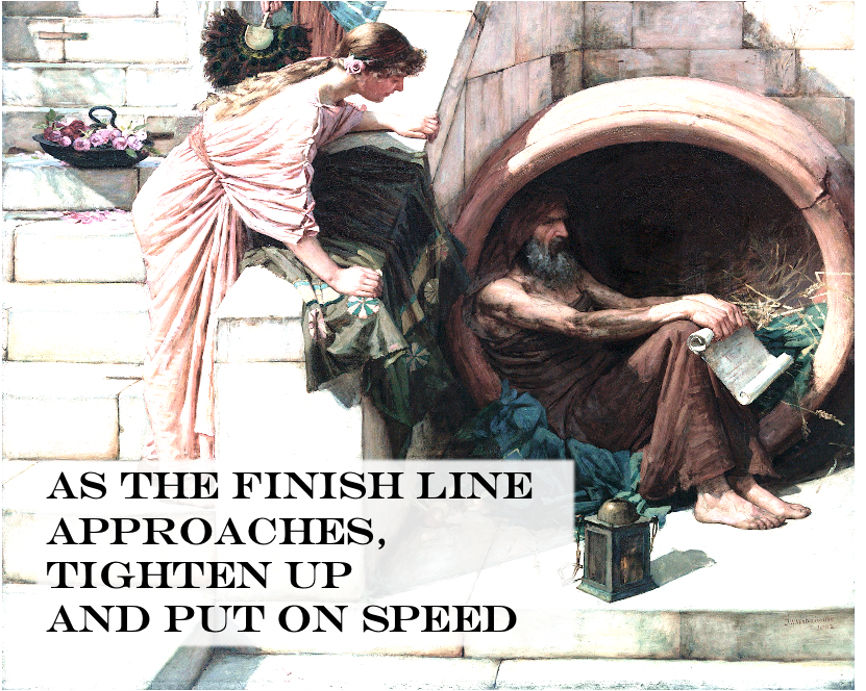Skepticism about the Trump trials extends to cynicism about the entire political system
Can justice be impartial? This is an ancient question raised anew by the trials of Donald Trump, who has denigrated his indictments as politically motivated “witch hunts.” In Trump’s telling, this is all the work of biased prosecutors and “crooked” or “corrupt” judges.
Trump does not say that he will be vindicated in court by showing evidence and making arguments before the jury. Rather, our leading candidate for president casts doubt on the impartiality of the judicial system itself.
For Trump, justice is primarily a matter of power. He has said he will go after “the Biden crime family” if elected. He used to say he wanted to lock up Hilary Clinton. The Trumpian theory is that whoever is in power gets to punish those who are not in power.
This is an ancient idea. In Plato’s Republic, it is articulated by a character named Thrasymachus, a Greek name that means something like “fierce fighter.” Thrasymachus says justice is whatever the stronger party says it is. Plato rejects this as a tyrannical idea.
As I discuss in my book on Trump and tyranny, a tyrant desires the godlike power to create the law in his own image. This way of conceiving justice is based on bad theology and a pernicious view of political life. God is not a tyrant who arbitrarily makes up the law, but human tyrants and tyrannical regimes do behave in this capricious way.
The antidote to the tyrannical idea of justice is natural law and natural rights. Natural law holds that actions are objectively right or wrong, and that the legal system ought to administer justice impartially. On this theory, there is an objective truth of the matter, and punishments are meant to fit the crime.
A related idea focuses on producing good social consequences by using punishment to deter crime. This approach depends upon a general commitment to the rule of law as a good thing for individuals and society. But there are limits to what can be done in pursuit of “domestic tranquility.” Terrifying and arbitrary punishments may work to “scare people straight,” as the saying goes, but the Eighth Amendment of the Constitution prohibits the sorts of cruel and unusual punishments used by tyrannical regimes.
Further, a stable political and legal system depends upon basic standards of evidence and proof. Such a system assumes (for the most part) an objective account of knowledge and truth. This assumption holds that facts exist and that reasonable people — a jury of your peers — will tend to agree about evidence and argument.
But when people do not agree about the status of the evidence, the arguments or the value of the law itself, there is the risk of chaos and violence. Cynics will claim that since the whole thing is a farce and there is no such thing as objective justice, then there is nothing left but struggles for power.
This seems to be the point of the Trumpian effort to muddy the water with regard to proof, evidence, facts and institutions. Trumpians suggest that there are “alternative facts” and “fake news.” They claim that the system is a “swamp” that needs to be drained. In this environment, skepticism about the Trump trials extends to cynicism about the entire political system, including the electoral process. Thus, those jailed for their criminal acts on January 6 become “hostages” captured by those in power, whom Trump has pledged to pardon.
With all of this on the table, it is clear that the Trump trials are of the utmost importance for the body politic. These are public performances of the law in which impartiality, objectivity and justice are themselves on trial. The audience for this trial is “we, the people.” As these trials unfold, we must ask ourselves about our faith in the system: Is the criminal justice system a travesty of power run amok? Or is it possible for justice to be neutral, objective and truthful?
Read more at: https://www.fresnobee.com/opinion/readers-opinion/article287736320.html#storylink=cpy





